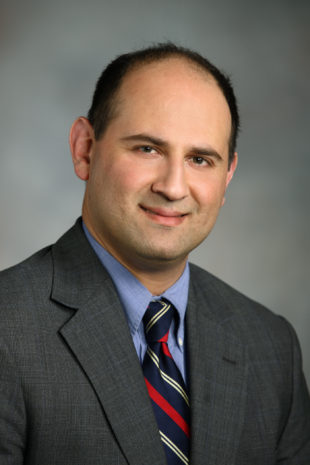Pakistani Surgeon Fills Key Medical Gap in North Dakota
Date: November 21, 2015

Before Dr. Syed Osman Ali arrived in Grand Forks, North Dakota, many patients in this state needing complex thoracic surgery or even urgent cardiac surgery would make a 400-mile trek to the Mayo Clinic in neighboring Minnesota for their care. The hospital in Grand Forks had operating equipment; what it didn’t have was staff.
“You can do everything here,” Ali explains. “All you need is personnel.”
Unfortunately, that can be a tall order. Like many predominantly rural states, North Dakota suffers from a shortage of physicians. One in five counties in both North and South Dakota lack even a single active physician.
“There is a trend toward people not getting timely help in this part of the country,” Ali says.
It’s a scenario that plays out across America with increasing frequency. Just as the baby boomers age, putting added stress on the healthcare system, a large number of physicians are retiring. Young doctors, meanwhile, gravitate to cities.
Ali was no different. After graduating medical school in his native Pakistan, he sought a residency in the United States, to “learn surgery from the best doctors,” and went on to fellowships in advanced cardio-thoracic surgery and thoracic oncology in Chicago and Boston.
In full, Ali spent nine years studying to be a surgeon in the United States using the J-1 visa, which allows foreign nationals to come to America for academic or professional training. The visa, however, requires that individuals return to their home country for two years after completing their training—a provision that sends away steady stream of talent.
Osman saw a place for himself in the United States. So, he took advantage of the Conrad 30 Waiver Program, an initiative that excuses J-1 doctors from the requirement that they return home if they agree to practice in a medically underserved part of the United States for three years. Altru Health System, which serves more than 300,000 patients, used the program to recruit Ali—a highly trained physician even by Boston standards.
Altru Health System, which serves more than 300,000 patients, used a program designed for underserved areas to recruit Ali—a highly trained physician even by Boston standards.
“They had never really had a thoracic cancer surgeon,” Ali says. At the beginning, “even the GI doctors, no one would send anything our way.”
Within three years, Ali changed that culture. He trained other surgeons at the hospital in updated methods. He trained the surgical techs and post-operative nurses. He developed surgical follow-up programs with other doctors and implemented the kind of pre-surgery planning sessions that are now standard in research hospitals.
“We started doing a lot of surgery,” he says. “Slowly we built up to a complex level.”
And, gradually, area doctors started referring patients for both complex cases and those that would require careful follow-up care. He operated on the massive heart attacks and the cancer cases, and he explained to patients, among them the stalwart “Norwegian farmers,” that they could get things like a hiatal hernia operated on locally, rather than delay treatment and live with the pain.
“There are a lot of people who are very grateful,” says Ali. “It may be a small town, but these people have very big, real surgical problems… Not everyone can make it to Mayo.”
